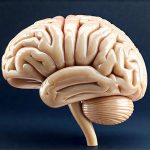The modern world presents a constant barrage of stimuli, demanding peak cognitive function from us daily. Yet, many struggle with brain fog, difficulty concentrating, and persistent mental fatigue – often attributing these issues to stress, lack of sleep, or simply “life.” While those factors undeniably play a role, an increasingly recognized contributor is food sensitivities, and the impact they have on neurological health. These aren’t necessarily allergies, which involve an immediate immune response; rather, food sensitivities are more subtle, delayed reactions that can silently erode mental clarity over time. Understanding this connection is crucial for optimizing not just physical wellbeing but also cognitive performance.
The gut-brain axis – a bidirectional communication network linking the digestive system and the brain – is at the heart of this relationship. What we eat directly influences the composition of our gut microbiome, the trillions of bacteria residing in our intestines. An imbalance in this delicate ecosystem (dysbiosis), often triggered by problematic foods, can lead to inflammation, impaired nutrient absorption, and ultimately, disruptions in neurotransmitter production—the chemical messengers essential for optimal brain function. This means that seemingly innocuous foods could be unwittingly sabotaging your ability to think clearly, focus effectively, and maintain a stable mood. If you’re looking to understand how food intolerances stress the pancreas, there are resources available to help.
The Gut-Brain Connection: A Deeper Dive
The gut and the brain are connected through several key pathways. One major route is the vagus nerve, often referred to as the “wandering nerve,” which acts as a direct communication line between the two organs. Signals travel both ways – from the gut to the brain (influencing mood and cognition) and from the brain to the gut (affecting digestion). Another pathway involves the immune system; approximately 70-80% of our immune cells reside in the gut, making it a critical site for immune regulation. When food sensitivities trigger an inflammatory response in the gut, it can activate the immune system, leading to systemic inflammation that reaches the brain – a phenomenon known as neuroinflammation. This chronic low-grade inflammation is linked to cognitive decline and mood disorders.
Furthermore, the gut microbiome plays a vital role in producing neurotransmitters like serotonin (the “happy hormone”) and dopamine (associated with motivation and focus). A healthy gut microbiome ensures adequate production of these crucial chemicals; however, when disrupted by food sensitivities, it can lead to deficiencies impacting mental wellbeing. For individuals navigating this, how to build gut resilience is key. For example, inflammation can impair tryptophan absorption – an amino acid necessary for serotonin synthesis. This highlights why dietary changes targeting gut health are often effective in managing mood and cognitive symptoms.
Finally, the permeability of the intestinal lining—often referred to as “leaky gut”—is significantly affected by food sensitivities. A compromised intestinal barrier allows undigested food particles and toxins to enter the bloodstream, further fueling systemic inflammation and potentially triggering an immune response that impacts brain function. Addressing these issues often requires more than just eliminating trigger foods; it involves rebuilding gut health through targeted nutritional strategies. Understanding digestive enzymes influence bowel movements can also support overall digestive health.
Identifying Food Sensitivities
Pinpointing food sensitivities can be challenging because reactions are often delayed and don’t involve typical allergic symptoms like hives or anaphylaxis. Common culprits include gluten, dairy, soy, corn, eggs, and nightshades (tomatoes, peppers, potatoes). The gold standard for identification is an elimination diet, a structured process designed to identify reactive foods.
- Elimination Phase: Remove suspected trigger foods from your diet for 2-3 weeks. This requires diligent label reading and potentially significant dietary changes. Focus on whole, unprocessed foods during this period.
- Reintroduction Phase: Gradually reintroduce each eliminated food individually, one at a time (every 3-4 days). Monitor closely for any symptoms – these can be subtle and may include brain fog, headaches, fatigue, digestive upset, skin rashes, or mood changes. Keep a detailed food and symptom journal to track both intake and symptoms.
- Observation & Adjustment: If a food triggers symptoms upon reintroduction, eliminate it again. This process helps identify which foods are causing problems for you specifically.
It’s important to note that elimination diets can be restrictive and may benefit from guidance by a registered dietitian or healthcare professional. There are also commercially available food sensitivity tests (blood tests), but their accuracy is debated; they should not replace an elimination diet as the primary method of identification. If you suspect sensitivities, consider when to re-test for food sensitivities in children.
The Role of Inflammation in Brain Fog
Chronic inflammation is increasingly recognized as a major contributor to brain fog – that frustrating state of mental sluggishness, poor concentration, and difficulty thinking clearly. Food sensitivities can be a significant source of this inflammation. When the immune system reacts to food proteins it perceives as threats, it triggers an inflammatory cascade. This isn’t just localized to the gut; the resulting cytokines (inflammatory molecules) can cross the blood-brain barrier and directly impact brain function.
The consequences of neuroinflammation are far-reaching. It can disrupt synaptic plasticity – the brain’s ability to form new connections – impairing learning and memory. It also interferes with neurotransmitter synthesis and receptor function, leading to imbalances that affect mood, motivation, and cognitive performance. Reducing inflammation through dietary changes is a key strategy for improving mental clarity. This involves not only eliminating trigger foods but also incorporating anti-inflammatory foods like omega-3 fatty acids (found in fatty fish), antioxidants (from fruits and vegetables), and probiotics (to support gut health).
Nutrient Deficiencies & Cognitive Function
Food sensitivities can lead to nutrient deficiencies, which further exacerbate cognitive problems. When the gut is inflamed or compromised, it struggles to absorb nutrients effectively. This can result in deficiencies of essential vitamins and minerals vital for brain health – such as B vitamins (important for nerve function), vitamin D (linked to mood regulation), magnesium (involved in neurotransmitter production), and iron (necessary for oxygen transport to the brain).
Furthermore, certain food sensitivities can directly interfere with nutrient absorption. For example, gluten sensitivity can damage the intestinal lining, impairing the absorption of various nutrients, including folate and zinc. Addressing these deficiencies is crucial for restoring optimal cognitive function. This may involve supplementation under the guidance of a healthcare professional, alongside dietary changes to improve nutrient absorption. A well-rounded diet rich in whole foods is the foundation for supporting brain health and mitigating the effects of food sensitivities on mental clarity. It’s important to remember that individual needs vary, and personalized nutritional strategies are often the most effective approach. You might also consider how to reset the gut after too much junk food to support overall health. Finally, learning how to spot a food reaction without a rash can help you identify sensitivities quickly.


















